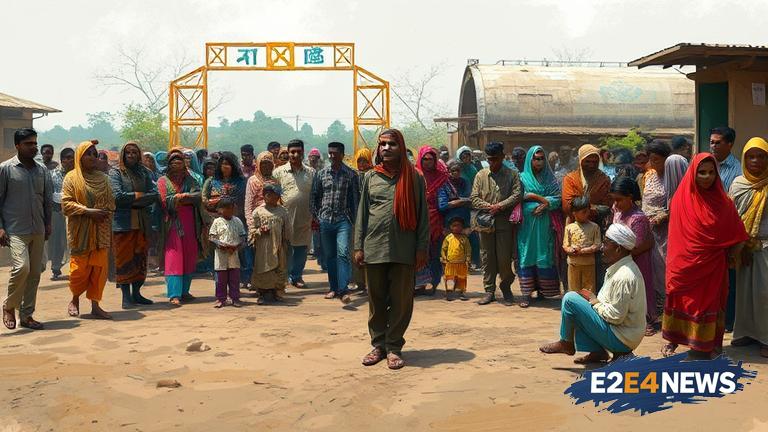The Rohingya conference, held in Cox’s Bazar, Bangladesh, brought together international experts, diplomats, and stakeholders to discuss the ongoing Rohingya crisis. The conference concluded with a call to action, urging the international community to intensify efforts to resolve the crisis. The Rohingya crisis, which began in 2017, has resulted in the displacement of over 700,000 Rohingya Muslims from Myanmar to Bangladesh. The conference highlighted the need for a comprehensive solution to the crisis, including the safe and dignified return of Rohingya refugees to their homes in Myanmar. Participants emphasized the importance of addressing the root causes of the crisis, including state-sponsored violence and discrimination against the Rohingya minority. The conference also discussed the need for increased humanitarian assistance to support the Rohingya refugees in Bangladesh. The international community was urged to provide more funding and resources to support the refugees, as well as to pressure the Myanmar government to take concrete steps to address the crisis. The conference was attended by representatives from the United Nations, the European Union, and other international organizations, as well as government officials from Bangladesh and other countries. The participants acknowledged the significant challenges faced by Bangladesh in hosting the large number of Rohingya refugees and praised the country’s efforts to provide humanitarian assistance. However, they also emphasized the need for a more sustainable and long-term solution to the crisis. The conference called for increased international support to help Bangladesh manage the refugee crisis, including the provision of more funding, resources, and technical expertise. The participants also emphasized the importance of promoting economic development and social cohesion in the affected areas. The conference highlighted the need for a coordinated and comprehensive approach to address the crisis, involving governments, international organizations, and civil society. The Rohingya crisis has significant regional and global implications, and the international community must work together to find a solution. The conference urged the international community to take a more proactive and engaged approach to addressing the crisis, including through diplomatic efforts and economic pressure on the Myanmar government. The participants also emphasized the need for increased support to the Rohingya refugees, including access to education, healthcare, and livelihood opportunities. The conference concluded with a call to action, urging the international community to work together to resolve the Rohingya crisis and promote peace, stability, and human rights in the region. The Rohingya crisis is a complex and multifaceted issue, requiring a comprehensive and sustained response from the international community. The conference highlighted the need for a more nuanced and informed approach to addressing the crisis, taking into account the complex historical, cultural, and political context of the region. The participants emphasized the importance of promoting dialogue and cooperation between governments, international organizations, and civil society to find a solution to the crisis. The conference also discussed the need for increased accountability and transparency in addressing the crisis, including through independent monitoring and evaluation mechanisms. The Rohingya crisis has significant humanitarian, political, and economic implications, and the international community must work together to find a solution. The conference urged the international community to take a more proactive and engaged approach to addressing the crisis, including through diplomatic efforts and economic pressure on the Myanmar government.
